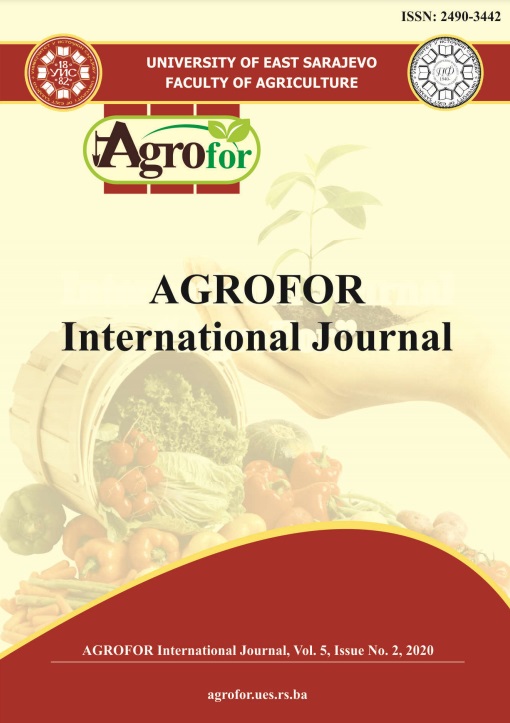DETERMINANTS AND STRATEGIES OF FARMERS’ ADAPTATION TO CLIMATE CHANGE: THE CASE OF MEDENINE GOVERNORATE, TUNISIA
DOI:
https://doi.org/10.7251/AGRENG2002124AAbstract
Climate change is a worldwide environmental issue to all economic sectors, mainly
the agricultural sector. Tunisia is one of the countries adversely affected by climate
change because of its low adaptive capacity. Adapting to climate threat is the main
goal of farmers, who are the primary stakeholders in agriculture, to increase the
resilience of their farming systems. Based on a survey between March and May
2018 with 100 agricultural households from the governorate of Medenine, which
belongs to Southeast Tunisia, this paper examined the main adaptive measures to
climate change used by farmers, the factors influencing their choice of measures
and the constraints to adaptation. To explore the factors affecting the choice of
adaptive measures, this study employed a multinomial logit regression. Results
showed that irrigation, crop diversification, integration of crop with livestock and
shifting from farm to non-farm activities were the main adaptive measures
implemented by farmers in the study area. Further, the multinomial logit model
indicated that the factors influencing the choice of adaptive measures included
household head age, access to extension services, household income, number of
years of experience of the household head in agriculture, and the distance to the
market. The results demonstrated also that adaptation to climate change was
hindered by many factors such as constrained resources, lack of money, and water
shortage. The findings of this research suggest the need for improving the access to
extension services, to water, and to means of production to enhance the resilience
of vulnerable agricultural households and to improve their wellbeing.

